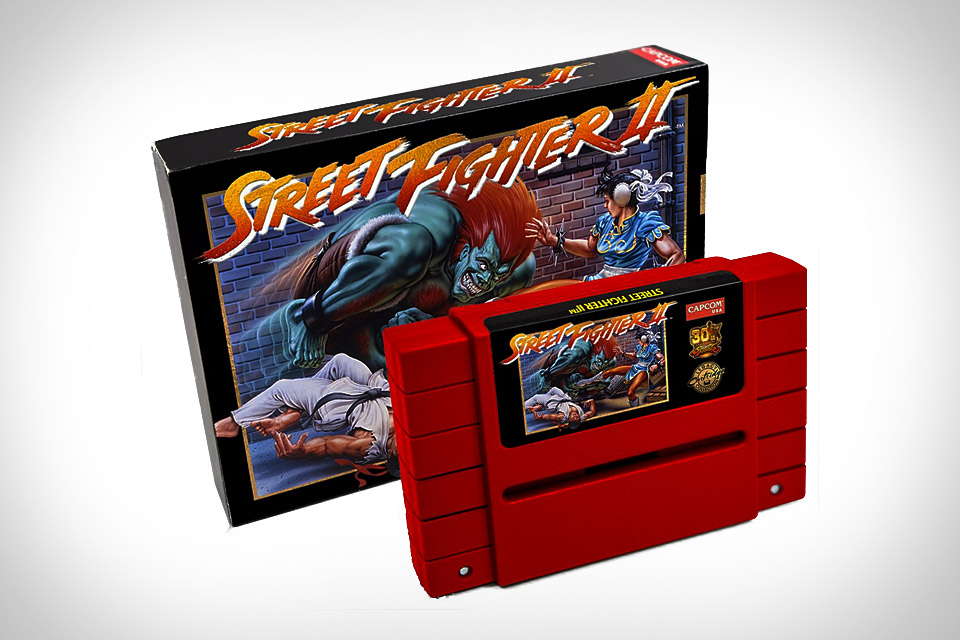

- #STREET FIGHTER 30TH ANNIVERSARY EDITION DIFFERENCE ULTIMATE FULL#
- #STREET FIGHTER 30TH ANNIVERSARY EDITION DIFFERENCE ULTIMATE CODE#
When he did, Mad Catz teammate Daigo Umehara suggested him to pick Akuma, as a character like Ryu would be too difficult to win with initially. Tokido got into Street Fighter IV late compared to other high-level players. Although controversial even between his inner-circle friends, Tokido would always focus on cheap characters, going for oppressive strategies to win a plethora of championships in many different games. Throughout the 2000s, he cemented himself as a top competitor in multiple fighting game franchises, including Melty Blood, BlazBlue, Guilty Gear, Street Fighter, Virtua Fighter and Dead or Alive. By competing against his older cousin, Tokido got a taste of victory in games and started chasing self-improvement within the genre.Īt 17 years of age, Tokido won his first EVO championship during a visit to the United States. Tokido was introduced to fighting games in the 1990s, when he played Street Fighter II on the Super Famicom and The King of Fighters '94 on the Neo Geo MVS. For his vast success and the longevity of his career in a variety fighting games, Tokido is widely considered to be one of the greatest fighting game players of all time.

#STREET FIGHTER 30TH ANNIVERSARY EDITION DIFFERENCE ULTIMATE FULL#
In the "modern era" of the fighting game community, Tokido is most known for mastering Akuma in Street Fighter, using the character to it's full potential to win dozens of premier tournaments. As one of the Five Gods of fighting games, he became the face of consistency throughout his career, being able to compete at the highest level in any fighting game he dedicated himself to.

Before solely dedicating himself to the Street Fighter franchise, he was a top competitor in multiple fighting game series, including The King of Fighters, Guilty Gear, Soul Calibur, Virtua Fighter, Dead or Alive, BlazBlue, Tekken, Street Fighter X Tekken, Marvel vs Capcom and Capcom vs. SNK 2 in 2002, Super Street Fighter II Turbo in 2007, and Street Fighter V in 2017. Tokido is a three-time EVO champion, having won Capcom vs. Marvel Super Heroes vs.Hajime "Tokido" Taniguchi (born July 7, 1985) is a Japanese Fighting Games player currently representing REJECT and Rohto.This was fixed in 040202 (February 2, 2004) revision. In 031222 (December 22, 2003) revision, if an attack sound is supposed to repeat (such as ST Sagat's Tiger Uppercut), the attack sound would only play once. The Japanese version also included a win counter. The logo for the secret Super Turbo Old mode (accessible by highlighting Super and pressing Start + Jab Punch) is also different between versions, for obvious reasons. In addition to all previous regional changes, Hyper added a new regional difference: the play types "Super T" ( Super Turbo) and "Champ" ( Champion Edition) in the international versions are "Super X" and "Dash" in the Japanese version, reflecting the different naming of the games between region. These were discarded in Hyper in favor of the The New Challengers versions of said themes for those instead.Īside from characters' portraits and sound, inside the game's data there are several assets from the character select screen, attract mode, and endings from the earlier versions of Street Fighter II that lay there as leftovers while dumping assets during development.
#STREET FIGHTER 30TH ANNIVERSARY EDITION DIFFERENCE ULTIMATE CODE#
Three leftover songs from Super Turbo (specifically, the character select and attract mode themes and even the aforementioned unused music) remain accessible in this game, accessible by selecting sound code 0353, 0354, and 0352 in the sound test.


 0 kommentar(er)
0 kommentar(er)
